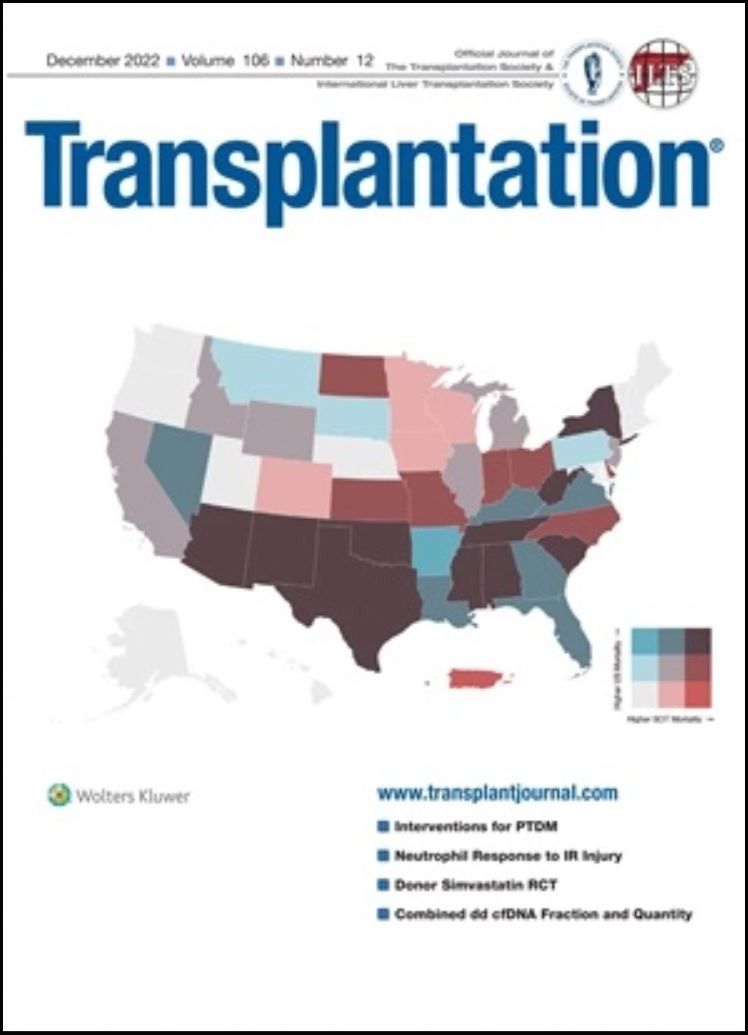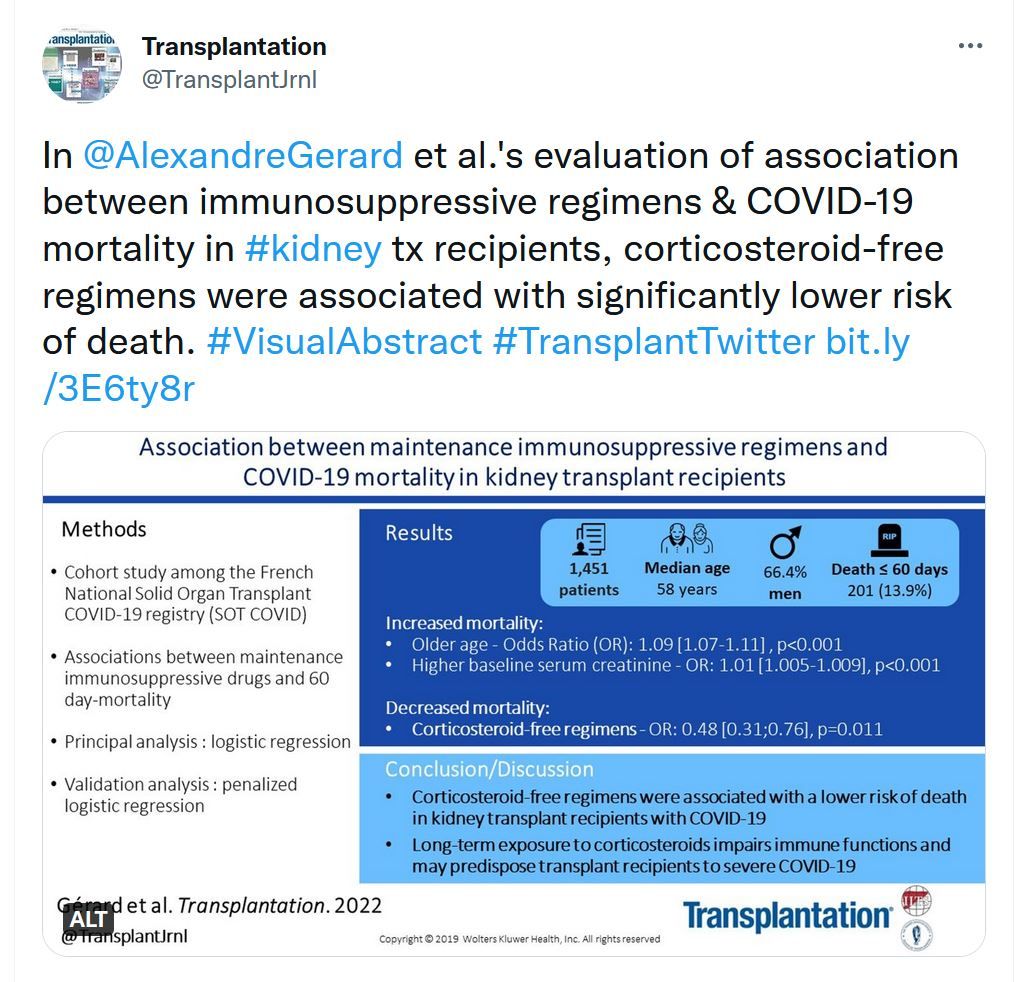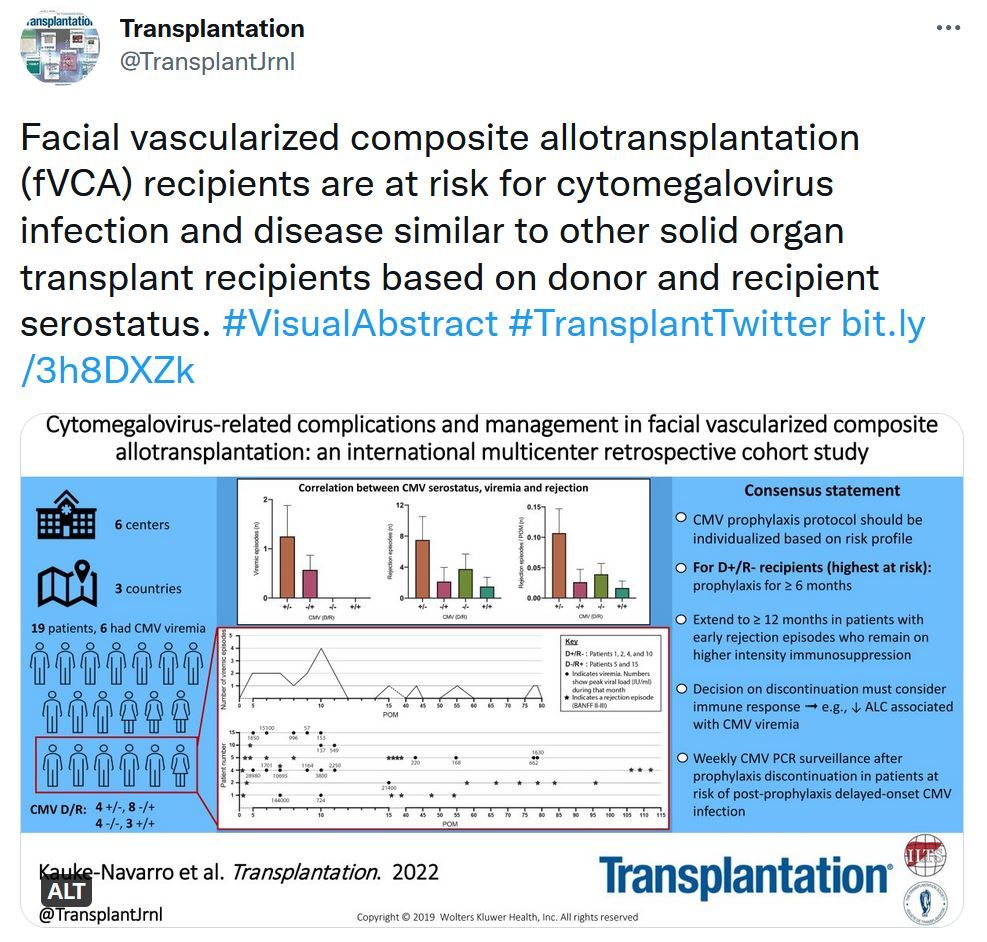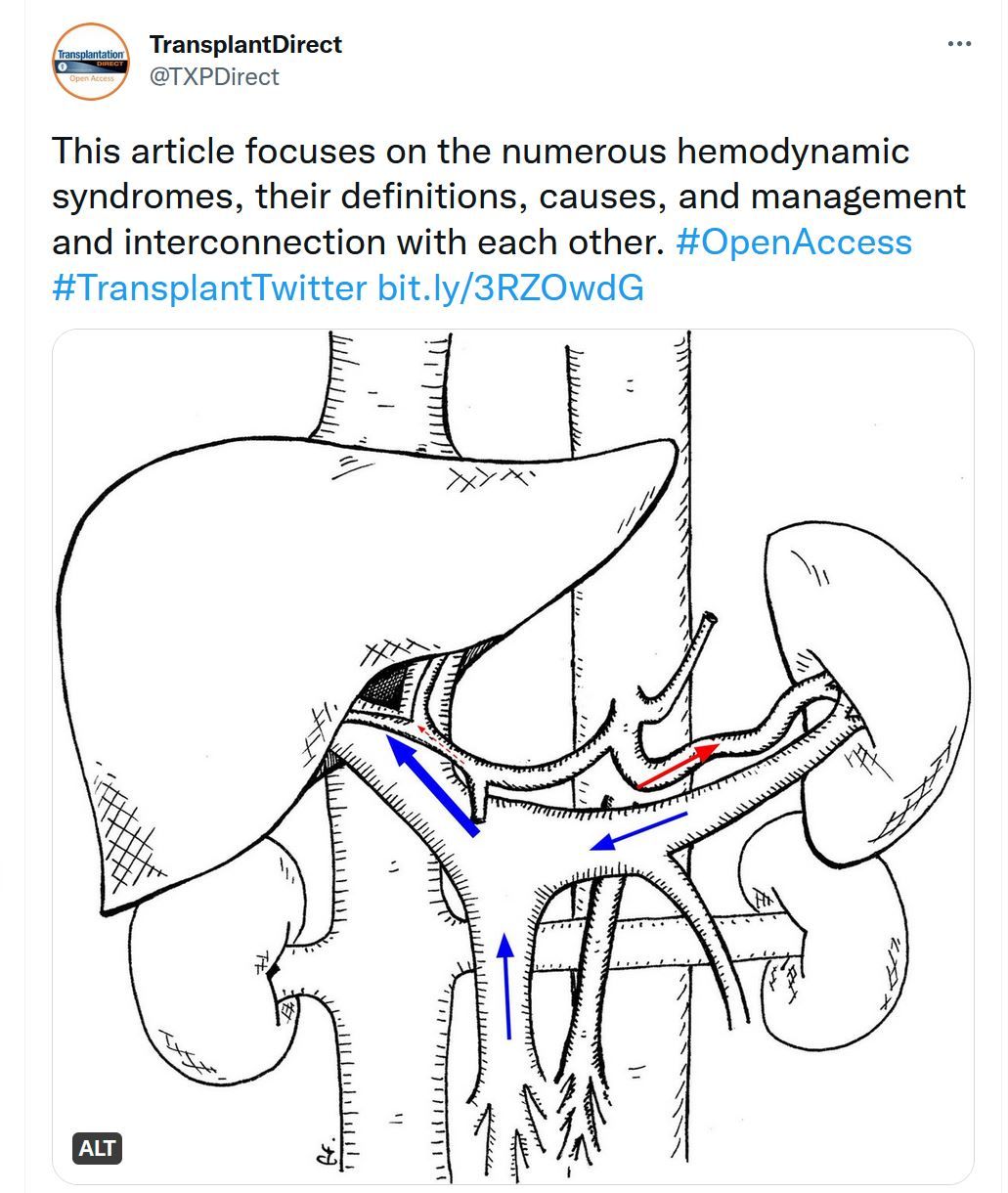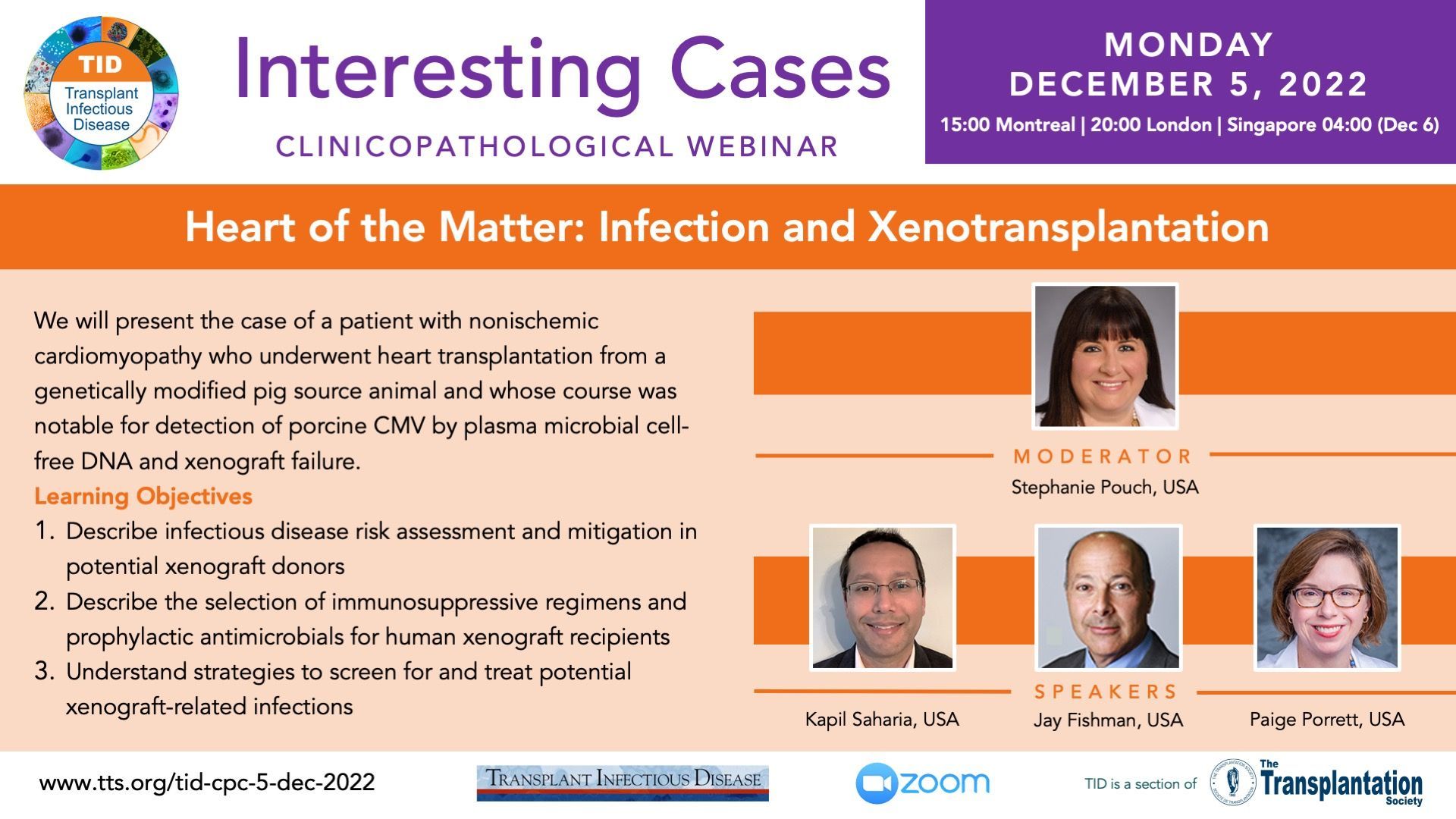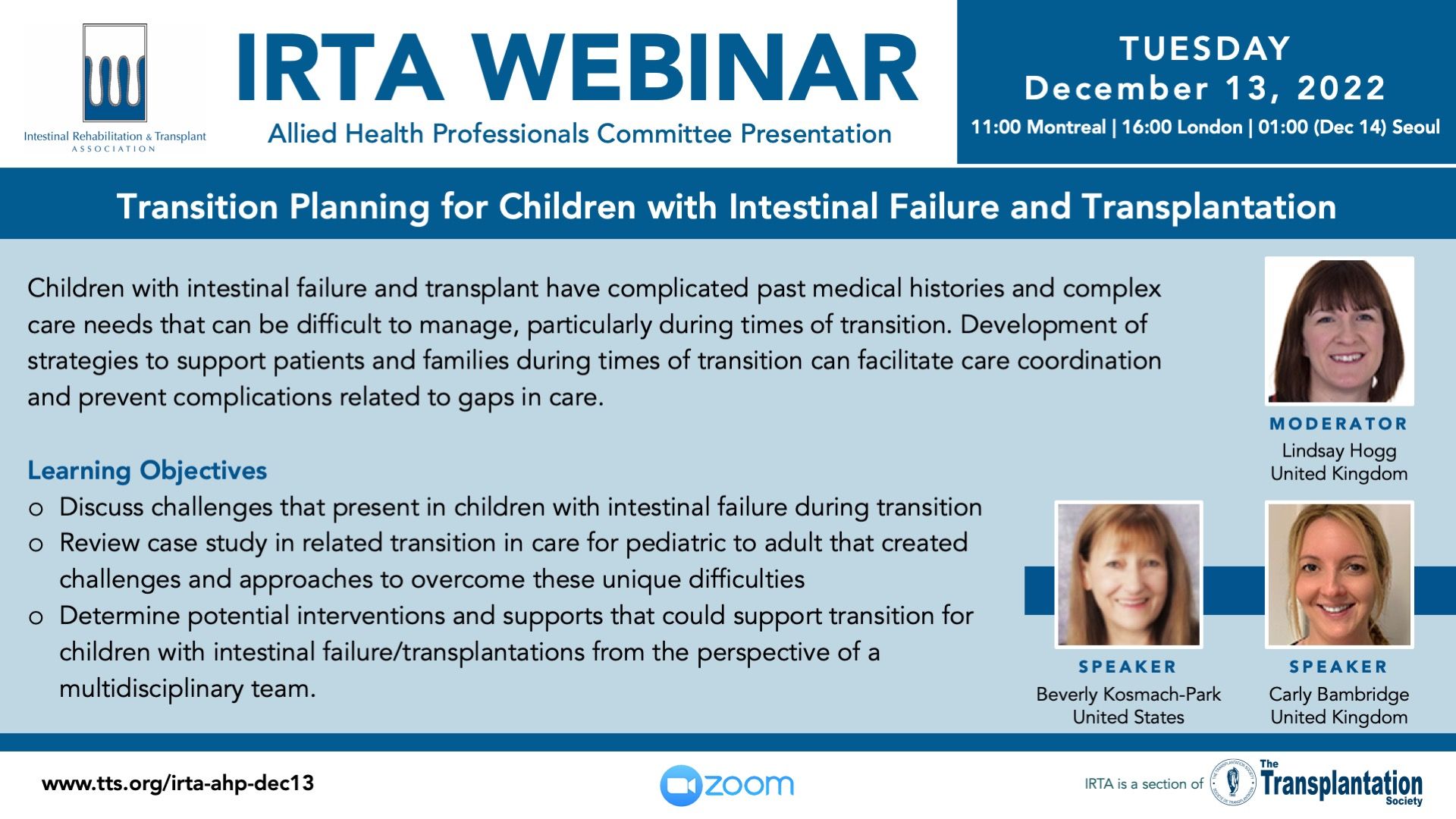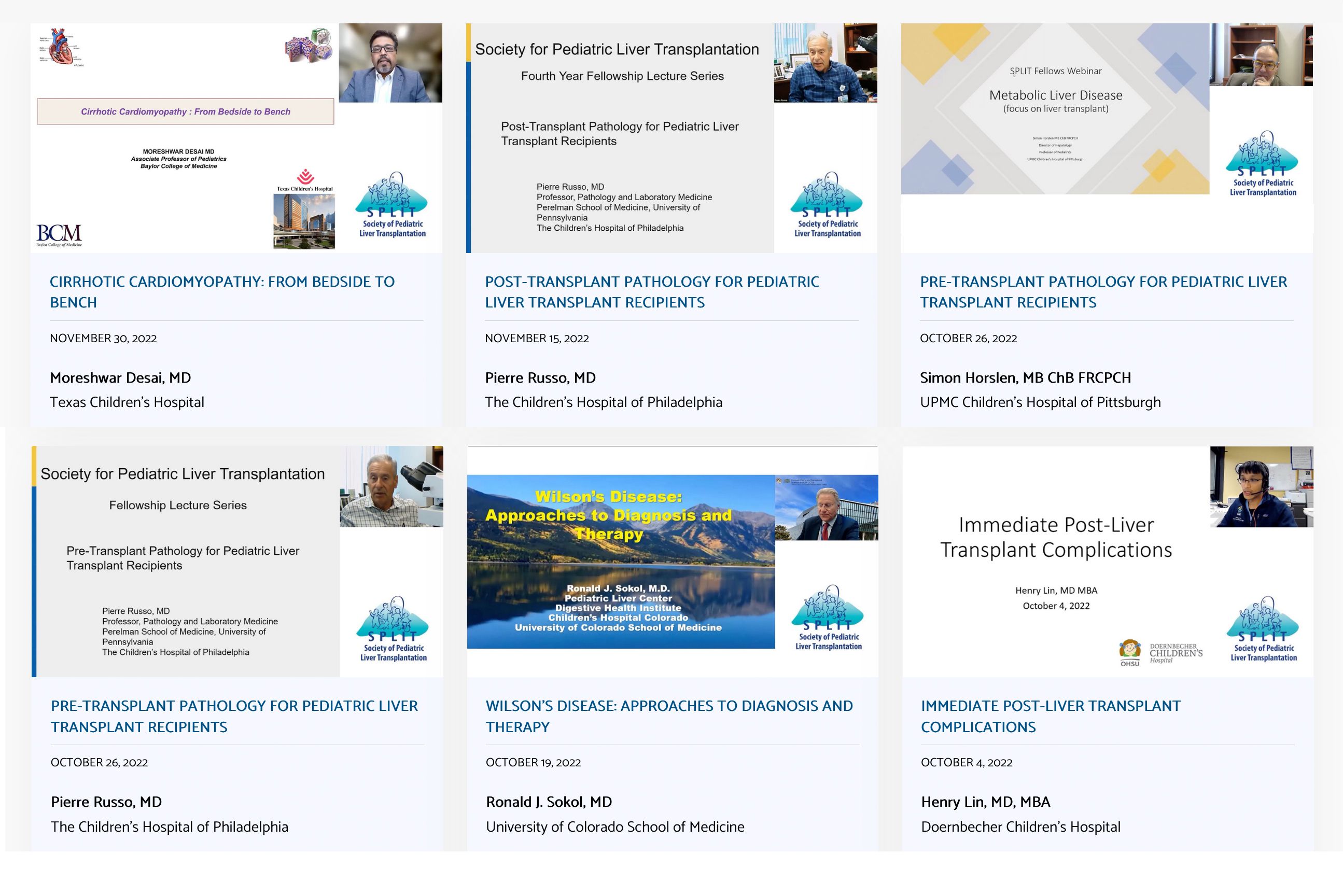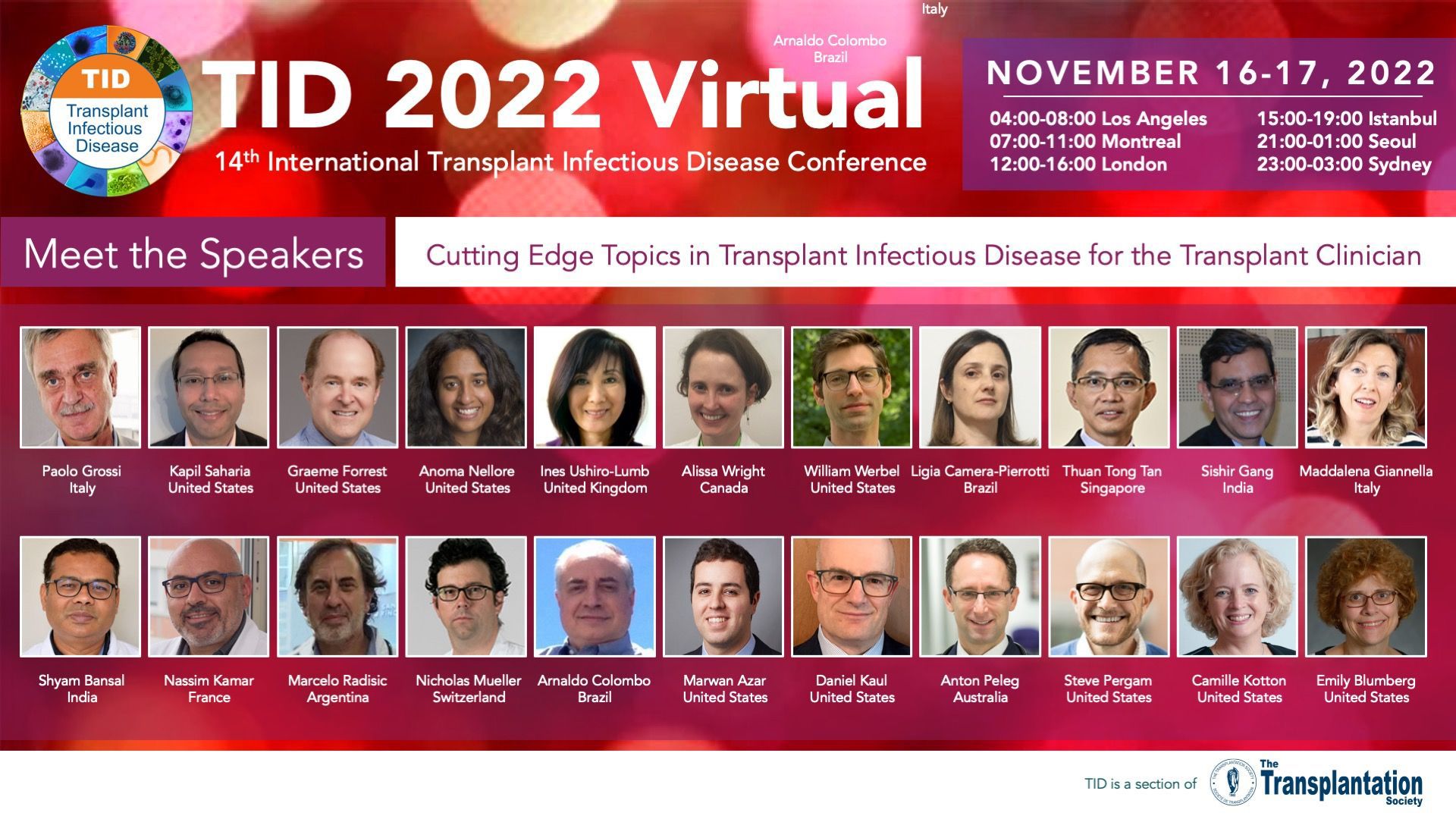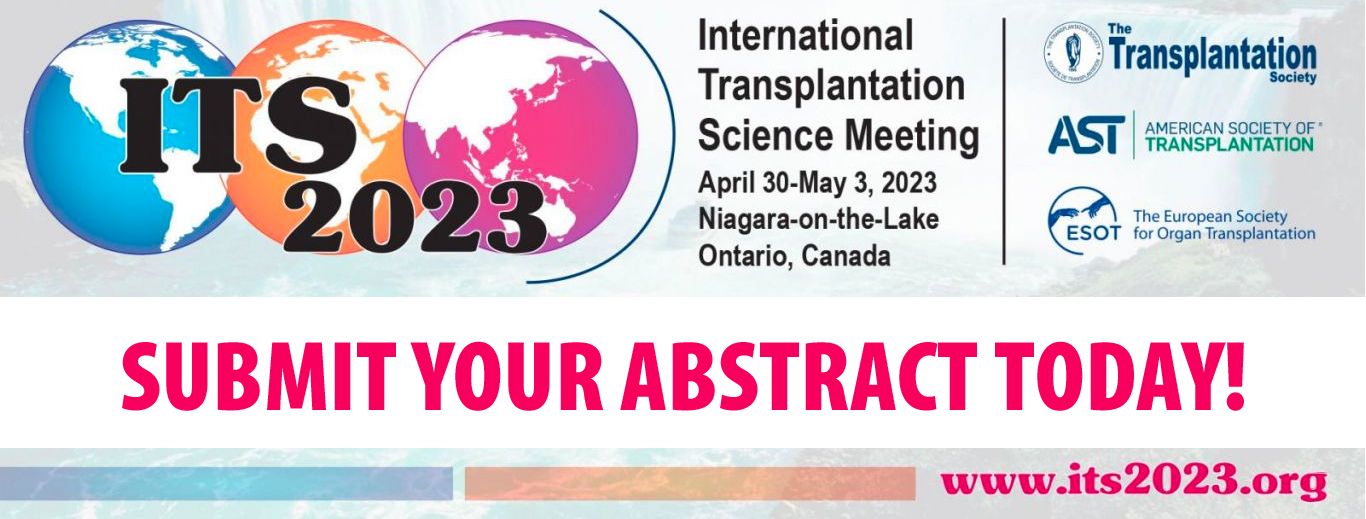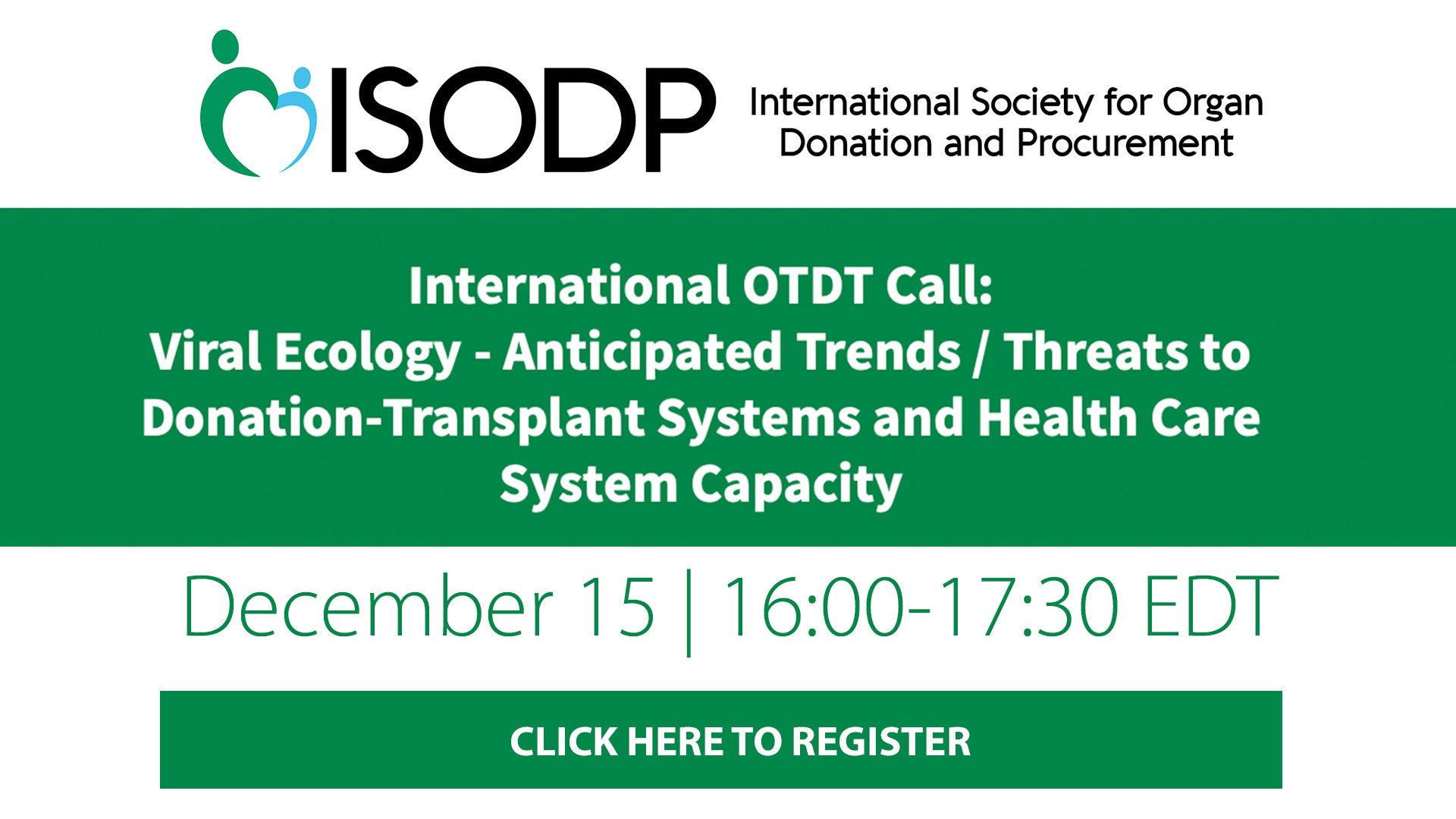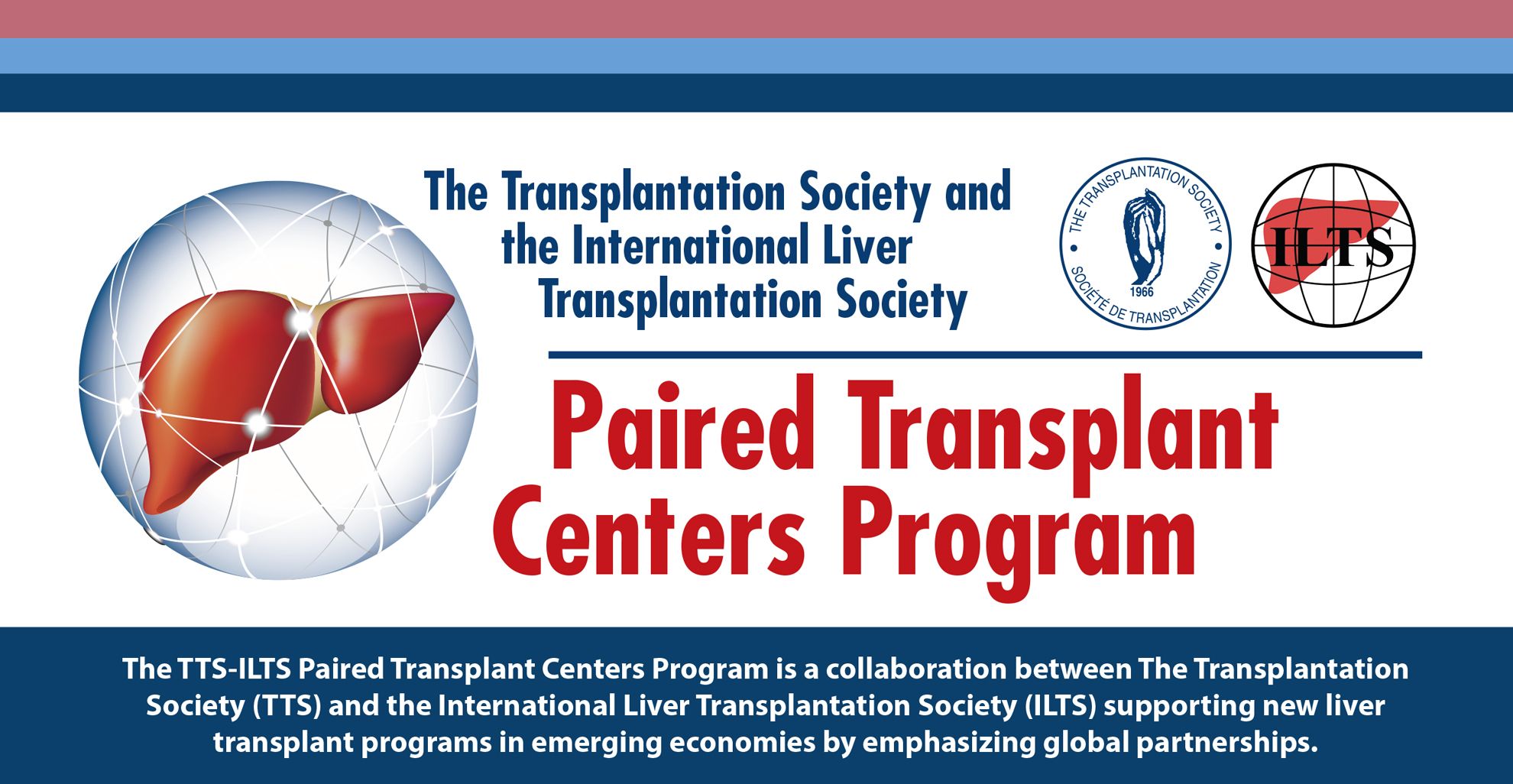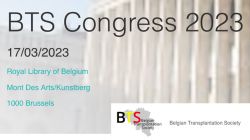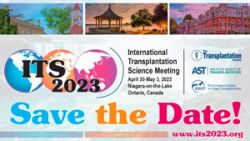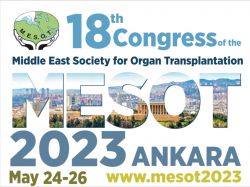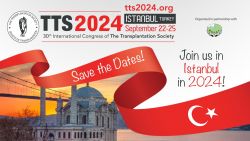
Transplantation Updates

Just Released - Transplantation - December 2022 Issue
Around the World
Research Highlights
Game Changer
Meeting Report
Expert Insight
- Research Involving the Newly Deceased Following Death by Neurologic Criteria: Ethical Justification and Guidelines
- Aspects of the CPRRD Affecting Xenotransplantation Research in Human Heart-beating Brain-dead Decedents
Special Articles
- From the Wright Brothers to the A380: Developing Transplantation Takes Teams of Teams
- “Creating Blue Skies Overhead for All” Introduction of the 2022 Recipient of the Medawar Prize of the Transplantation Society: Professor Jeremy Chapman
- Introduction of Dr Mannikam Suthanthiran as Recipient of the Medawar Prize for 2022
- The Medawar Prize Acceptance Speech 2022
Commentaries
- Right Versus Left: Progress but No Conclusion in Selecting Donors for Live Donor Liver Transplantation
- Machine Perfusion as “Comfort Zone”: What Are Key Challenges of Liver Viability Assessment Today?
- Improving Access to Renal Transplantation for Highly Sensitized Patients
Reviews
- Interventions Against Posttransplantation Diabetes: A Scientific Rationale for Treatment Hierarchy Based on Literature Review
- Updated Views on Neutrophil Responses in Ischemia–Reperfusion Injury
- The Value of Single-cell Technologies in Solid Organ Transplantation Studies
Original Basic Science
- Novel Complement C5 Small-interfering RNA Lipid Nanoparticle Prolongs Graft Survival in a Hypersensitized Rat Kidney Transplant Model
- Long-term Transplant Function After Thrombolytic Treatment Ex Vivo of Donated Kidneys Retrieved 4 to 5 H After Circulatory Death
- Extracellular Vesicles Released During Normothermic Machine Perfusion Are Associated With Human Donor Kidney Characteristics
Original Clinical Science—Liver
- Right Lobe Versus Left Lobe Living Donor Liver Transplantation: A Systematic Review and Meta-analysis of Donor and Recipient Outcomes
- Donor Simvastatin Treatment Is Safe and Might Improve Outcomes After Liver Transplantation: A Randomized Clinical Trial
- Predicting Early Allograft Function After Normothermic Machine Perfusion
Original Clinical Science—General
- Excess Mortality Among Solid Organ Transplant Recipients in the United States During the COVID-19 Pandemic
- High Prevalence of Long-COVID Among Kidney Transplant Recipients: A Longitudinal Cohort Study
- Impact of the Kidney Transplantation Moratorium in France Because of the COVID-19 Pandemic: A Cohort-based Study
- Incidence, Risk Factors, and Outcomes of COVID-19 Infection in a Large Cohort of Solid Organ Transplant Recipients
- Combining Donor-derived Cell-free DNA Fraction and Quantity to Detect Kidney Transplant Rejection Using Molecular Diagnoses and Histology as Confirmation
- The New 2021 CKD-EPI Equation Without Race in a European Cohort of Renal Transplanted Patients
- Impact of Sensitization on Waiting Time Prior to Kidney Transplantation in Germany
- Relevance of Anti-HLA Antibody Strength Underestimation in Single Antigen Bead Assay for Shared Eplets
- “Digital Tomosynthesis” As a Technique for the Evaluation of Endobronchial Stents in Lung Transplant Recipients
Letters to the Editor
- Successful Kidney Transplantation for Children Within 3 Weeks of COVID-19 Infection
- Transplanting Kidneys From Donors With SARS-CoV-2 RNA Positivity in Brazil: Early Success Under a Detailed Surveillance Approach
- The Predictors for Severe SARS-CoV-2 Omicron (B.1.1.529) and Pre-Omicron Variants Infection Among Kidney Transplant Recipients
- SARS-CoV-2 mRNA Vaccination Is Not Associated With the Risk of Allosensitization in Patients Awaiting Kidney Transplantation
- COVID-19 Infected Kidney Transplant Patients Outpatient Management—A Single-center Experience With a Hospital-at-home Program
Errata
- A 2018 Reference Guide to the Banff Classification of Renal Allograft Pathology: Erratum
- Clinical Effectiveness of SARS-CoV-2 Vaccination in Renal Transplant Recipients. Antibody Levels Impact in Pneumonia and Death: Erratum
- Establishing the Controlled Delivery of VEGF Using a Hydrogel Loaded Soft Robotic Drug Delivery System With the Aim to Prevascularise Implant Site for Islet Transplantation: Erratum
Transplantation - Week's Most Downloaded Papers
Association Between Maintenance Immunosuppressive Regimens and COVID-19 Mortality in Kidney Transplant Recipients
Solid organ transplant recipients are at high risk for fatal forms of coronavirus disease 2019 (COVID-19). We conducted a cohort study among kidney transplant (KT) recipients from the French Solid Organ Transplant COVID-19 Registry to investigate the association between maintenance immunosuppressive drugs and 60-d mortality.Cytomegalovirus-related Complications and Management in Facial Vascularized Composite Allotransplantation: An International Multicenter Retrospective Cohort Study
There is a paucity of data on the impact of cytomegalovirus (CMV) serostatus and CMV infection on outcomes in facial vascularized composite allotransplantation.Transplantation Direct - Highlighted Tweet
Understanding Local Hemodynamic Changes After Liver Transplant: Different Entities or Simply Different Sides to the Same Coin?
Liver transplantation is an extremely complex procedure performed in an extremely complex patient. With a successful technique and acceptable long-term survival, a new challenge arose: overcoming donor shortage. Thus, living donor liver transplant and other techniques were developed. Aiming for donor safety, many liver transplant units attempted to push the viable limits in terms of size, retrieving smaller and smaller grafts for adult recipients. With these smaller grafts came numerous problems, concepts, and definitions. The spotlight is now aimed at the mirage of hemodynamic changes derived from the recipients prior alterations. This article focuses on the numerous hemodynamic syndromes, their definitions, causes, and management and interconnection with each other. The aim is to aid the physician in their recognition and treatment to improve liver transplantation success.Latest Recordings
SPLIT is running a "4th Year Fellow Series" which includes talks on advanced hepatology and pediatric transplantation topics aimed to increase the knowledge of 4th year liver transplant fellows globally.
Upcoming Events
ISODP International OTDT Call
Survey - Using Social Media to Promote Cutting-Edge Research in Transplantation
Greetings,
Researchers from NYU Langone Health are conducting a research study titled Using Social Media to Promote Cutting-Edge Research in Transplantation. Dr. Macey Levan from the Departments of Surgery and Population Health at NYU Langone Health is the Principal Investigator leading this research. The purpose of this study is to learn how members of the Transplantation community use social media for professional purposes and how they see themselves using it in the future.
You qualify to complete this study if you fall under one of the following categories:
- Subscribers to the weekly email of new published articles in the Transplantation or Transplantation Direct journals
- Have submitted an article to the Transplantation or Transplantation Direct journals in the past 5 years
- Member of The Transplantation Society (TTS)
- Subscribers to newsletters from the TTS (Quarterly - Tribune, Weekly - Tribune Pulse)
Participation in this study is voluntary and will consist of completing an online survey about your thoughts on how you use social media for professional purposes and how you see yourself using it in the future. It will take about 5 minutes of your time.
If you are interested in participating, please click the link below to complete the survey:
https://nyumc.qualtrics.com/jfe/form/SV_bxvqr2xMkhhuyeW
If you have any questions or concerns about this study, please contact Dr. Levan at Macey.Levan@nyulangone.org.
This study has been reviewed by the NYU Langone Health Institutional Review Board (Study Number: 22-00681).
Sincerely,
The Editors and Communications
Offices of the Transplantation Journal
& Transplantation Society
TTS-ILTS Paired Transplant Centers Program - Apply Today!
Contact
Address
The Transplantation Society
International Headquarters
740 Notre-Dame Ouest
Suite 1245
Montréal, QC, H3C 3X6
Canada
Используйте Вавада казино для игры с бонусом — активируйте промокод и начните выигрывать уже сегодня!

